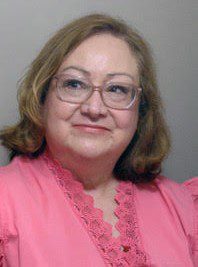“Oh, how foolish you are! How slow of heart to believe all that the prophets spoke!”
What harsh words to hear from Christ! True, the disciples on the road to Emmaus did not realize (yet) that He was the one speaking. But even after this gentle rebuke, they still invite Him to stay with them after a long day of travel. There is something in their hearts that longs for more words from their Teacher. After all, the truth Christ speaks to them is what they were made for – not the panic and worry of the town they’ve just left behind.
“Were not our hearts burning within us while He spoke to us on the way?” Even before Christ made Himself known in the breaking of the bread, He was revealing Himself to them. In their heart of hearts, they recognized Truth when He spoke, and it brought them courage and hope.
How often in the journey of life are we discouraged along the way? The news programs, the media outlets, our next-door neighbor, the tabloids in the check-out aisle … the sources of disheartening news go on and on, and there seem to be more of them every day. We can imagine the disciples from Emmaus felt much the same. They have faithfully followed Christ, only to see Him tried unfairly and then brutally killed, and His followers virtually disbanded. They were sure Christ must have been the Messiah – but where are all His promises now?
Naturally, they are surprised when Christ asks them about the cause of their dismay. What traveler in or out of Jerusalem wouldn’t know about the death of the Christ? “Haven’t you heard? It’s all over town!” For these disciples, the blustering and blowing of temporary news has nearly drowned out the lasting words of Scripture and of Christ’s teachings before His death.
So, Christ journeys with them, both literally and figuratively, encouraging them on the road. He delves into Scripture, explaining how each Old Testament prophecy has been fulfilled in Him. His gentle rebuke, His explanation of Scripture, and His sanctifying presence at their meal, all remind them – and us, thousands of years later – about lasting truths: God’s promises in Scripture, His enduring love for us, the hope He has been offering us since man’s fall from grace. He has not left us alone for a single moment.
Christ’s presence in this passage serves as a reminder of a much deeper, lasting peace that endures beyond the tempests of the world. Are we, like those disciples, also foolish sometimes? Have we been slow of heart to believe His promises, the truths that endure even after empires fall and peoples perish? His word has been true from the very beginning of time, and it will be true to the very end. No matter what storms the journey of life brings, He reminds us that we will always encounter Him in Scripture and the sacraments, and in Him, find true and enduring peace.
“¡Qué insensatos son ustedes y qué duros de corazón para creer todo lo anunciado por los profetas!”
¡Qué palabras tan duras escuchar de Cristo! Es cierto que los discípulos en el camino a Emaús no se dieron cuenta (todavía) de que Él era el que les hablaba. Pero incluso después de esta suave reprimenda, todavía lo invitan a quedarse con ellos después de un largo día de viaje. Hay algo en sus corazones que anhela más palabras de su Maestro. Después de todo, fueron creados para la verdad que Cristo les habla, no para el pánico y la preocupación del pueblo que acababan de dejar atrás.
“¡Con razón nuestro corazón ardía, mientras nos hablaba por el camino y nos explicaba las Escrituras!” Incluso antes de que Cristo se diera a conocer al partir el pan, se les estaba revelando. En lo más profundo de su corazón, reconocieron la Verdad cuando Él habló, y eso les trajo valor y esperanza.
¿Con qué frecuencia en el transcurso de la vida nos desanimamos a lo largo del camino? Los programas de noticias, los medios de comunicación, nuestro vecino de al lado, los tabloides en el pasillo de la caja… Las fuentes de noticias desalentadoras siguen y siguen, y parece que hay más cada día. Podemos imaginar que los discípulos de Emaús sintieron algo semejante. Habían seguido fielmente a Cristo, solo para verlo juzgado injustamente y luego asesinado brutalmente, y sus seguidores prácticamente desbandados. Estaban seguros de que Cristo debía haber sido el Mesías, pero ¿dónde están ahora todas sus promesas?
Naturalmente, se sorprenden cuando Cristo les pregunta cuál es la causa de su consternación. ¿Qué viajero que entra o sale de Jerusalén no sabría acerca de la muerte de Cristo? “¿No te has enterado? ¡Se sabe por toda la ciudad!” Para estos discípulos, el alboroto de las noticias temporales casi han ahogado las palabras duraderas de las Escrituras y de las enseñanzas de Cristo antes de su muerte.
Así que Cristo viaja con ellos, tanto literal como figurativamente, alentándolos en el camino. Profundiza en las Escrituras, explicando cómo cada profecía del Antiguo Testamento se ha cumplido en Él. Su suave reprensión, Su explicación de las Escrituras y Su presencia santificadora en la cena, todo les recuerda a ellos – y a nosotros, miles de años después – verdades duraderas: las promesas de Dios en las Escrituras, Su amor perdurable por nosotros, la esperanza que nos ha estado ofreciendo desde la caída del hombre. No nos ha dejado solos ni un solo momento.
La presencia de Cristo en este pasaje sirve como recordatorio de una paz mucho más profunda y duradera que perdura más allá de las tempestades del mundo. ¿Somos nosotros, como aquellos discípulos, también insensatos a veces? ¿Hemos sido duros de corazón para creer en Sus promesas, las verdades que perduran incluso después de que los imperios caen y los pueblos perecen? Su palabra ha sido verdadera desde el principio de los tiempos, y será verdadera hasta el final. No importa qué tormentas traiga la vida, nos recuerda que siempre lo encontraremos en las Escrituras y los sacramentos, y en Él, encontraremos una paz verdadera y duradera.
Hailing from Nashville, Catherine is a graduate of Christendom College with a lifelong passion for words. Her love of writing and her Catholic Faith continue to shape her as a freelance editor, copywriter, and (aspiring) novelist, where she pursues her passions for the love and greater glory of God.
Feature Image Credit: Anton Dorph, art.diocesan.com/stock-photo/the-walk-to-emmaus-20055/
The views and opinions expressed in the Inspiration Daily blog are solely those of the original authors and contributors. These views and opinions do not necessarily represent those of Diocesan, the Diocesan staff, or other contributors to this blog.
The post Stay With Us, Lord / Quédate con nosotros, Señor appeared first on Diocesan.






